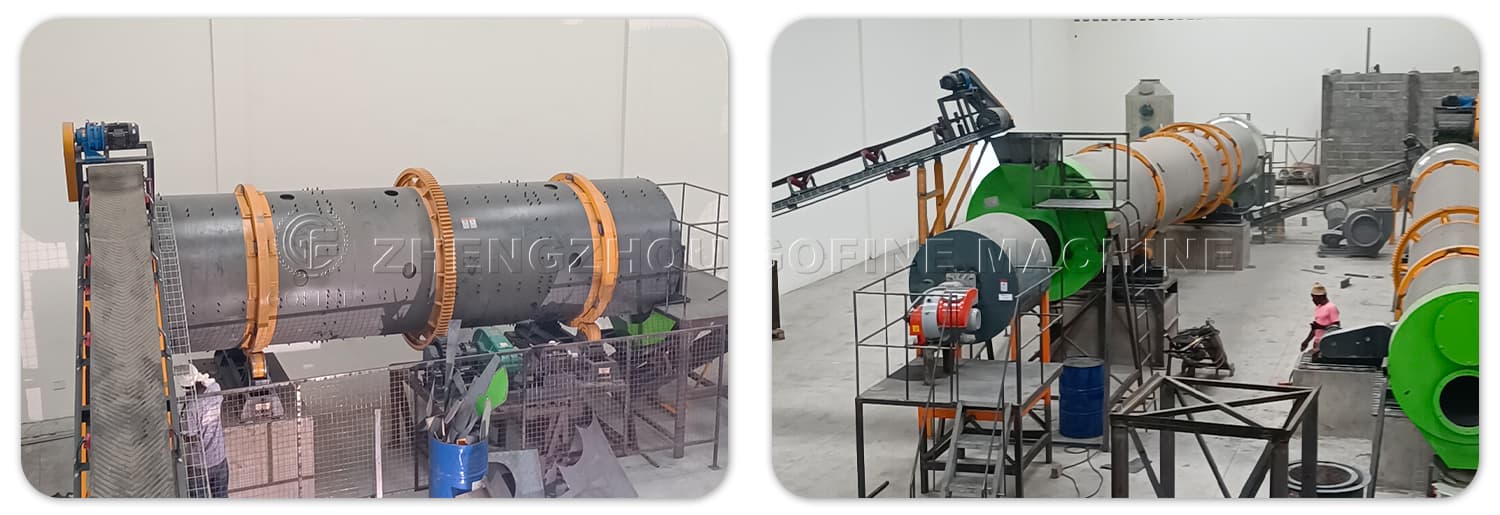
-
Home >> Solutions >> Design and diagram
Granulator for producing NPK granular fertilizer
In modern agriculture, NPK (nitrogen, phosphorus, potassium) fertilizers are an important factor in improving crop yield and quality. As a leading fertilizer equipment supplier, our NPK granulator has achieved remarkable success among many customers. This article will share a specific customer case to show how the NPK granulator can help companies improve production efficiency and product quality.
Client Background
Our client is a medium-sized agricultural fertilizer producer that focuses on providing high-quality NPK fertilizers.
The main challenges they face include:
-
Low production efficiency: The existing equipment cannot meet market demand, resulting in delivery delays.
-
Uneven particle quality: The produced NPK particles vary in size and shape, affecting market competitiveness.
-
Frequent equipment maintenance: The old equipment has a high failure rate, which increases operating costs.
Solution
In response to customer needs, we recommended our NPK granulator. This equipment has the following advantages:
1. Efficient granulation
The NPK granulator adopts advanced granulation technology, which can convert raw materials into uniform particles in a short time. By precisely controlling temperature and humidity, the stability of the granulation process is ensured, and production efficiency is greatly improved.
2. Particle uniformity
Through the optimized granulation process, the particles produced by the NPK granulator are beautiful in appearance and uniform in size, ensuring the solubility of fertilizers and nutrient release effects, and meeting the growth needs of different crops.
3. Energy-saving design
The equipment is characterized by high efficiency and energy saving, which can effectively reduce energy consumption, reduce production costs, and improve overall economic benefits.
4. Easy maintenance
The modular design of the NPK granulator makes equipment maintenance simpler, reduces downtime, and reduces maintenance frequency.
NPK granulation production line
NPK granulators also play a key role in fertilizer production lines, supporting efficient raw material processing and continuous production.
This granulator can handle a variety of raw materials, such as nitrogen fertilizers, phosphate fertilizers and potash fertilizers, and meet specific crop needs through precise proportions. Its advanced automatic control system ensures the consistency of pellet quality. At the same time, the NPK granulator has environmental protection characteristics, effectively controls dust and exhaust gas emissions, and meets environmental protection standards. In addition, the equipment supports the production of diversified pellet products, flexibly responds to market demand, and enhances corporate competitiveness.
Results
After installation and commissioning, the customer's NPK pelletizer was quickly put into production and achieved satisfactory results:
Improved production efficiency: The efficiency increased by 30%, and the delivery cycle was greatly shortened.
Improved pellet quality: The pellet uniformity was significantly improved, and the market feedback was good.
Reduced operating costs: Equipment maintenance costs were reduced by 20%, effectively increasing profit margins.
Customer Feedback
Customers spoke highly of our NPK granulator, saying that the performance of the equipment exceeded their expectations, especially in terms of pellet quality and production efficiency. They are looking forward to future cooperation with us and hope to further improve fertilizer production capacity.
This successful case demonstrates the importance of NPK granulator in modern fertilizer production. As a professional fertilizer equipment supplier, we are committed to providing customers with efficient and reliable solutions to help you stand out in the fierce market competition.
If you also want to improve fertilizer production efficiency, please contact us to learn more about fertilizer granulators! We look forward to working with you to jointly promote the development of agriculture.




